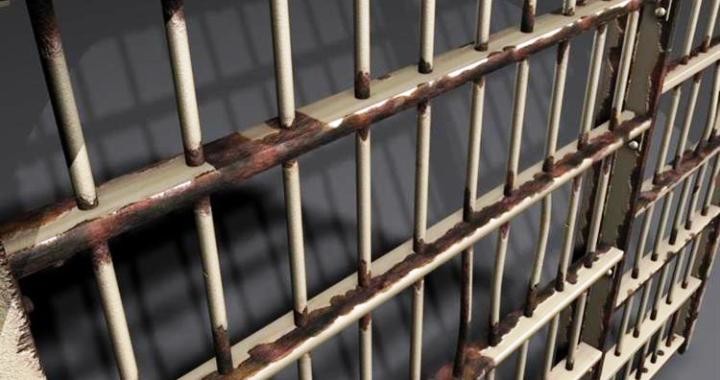Sudanese man and woman sentenced to death

Prison (RD file photo)
Ed Damazin Court in Blue Nile region issued a death sentence against civil servant El Habib Eisayesterday, after he was accused of “undermining the constitutional order.” On Sunday, a young woman in Port Sudan, capital of Red Sea state, was sentenced to death for allegedly cooperating with the RSF.
Eisa, who worked as an accountant at the Civil Aviation Authority, was detained at his workplace in January, according to Omar El Bashari, a member of the convict’s family. At the time, Eisa was released due to lack of evidence.
Last month, Eisa was detained for a second time. He was transferred to the prison in neighbouring El Roseires after he was sentenced to death. He reportedly did not see a lawyer.
El Bashari told Radio Dabanga yesterday that Eisa was politically active and supported democracy and the Sudanese revolution. “He was sentenced arbitrarily due to the circumstances of this war,” he said.
His relative described the ruling as being based on political bias and intent. “He is from West Kordofan, where members of the Rapid Support Forces (RSF) have been heavily recruited. He defends political issues and civil rights, and he was targeted on that basis.”
Port Sudan
In Port Sudan, the Anti-Terrorism and Crimes Against the State Court, headed by General Court Judge El Mamoun El Aggad, issued a young woman with a death sentence by hanging.
According to press sources in Port Sudan, where the de facto Sudanese government resides, the woman was accused of cooperation and communication with the RSF.
Police officers belonging to the General Intelligence Service (GIS) detained the woman in El Marat neighbourhood in Port Sudan. They allegedly found messages on her telephone glorifying the commander of the RSF. She also reportedly messaged a group of RSF members to ask about the fate of their leader.
The case was referred to the Anti-Terrorism and Crimes Against the State Court under Articles 51, 63, and 66 of the Criminal Code of 1991 (inciting war against the state, sedition, and spreading fake news), and Article 14 of the Anti-Cybercrime Law of 2018 (inciting hatred against sects, groups, and parties).
On the charges against her, she stated that she was not guilty. She completely denies the charges against her according to press sources in Port Sudan.
Capital punishment in Sudan is legal under Article 27 of the Sudanese Criminal Act 1991. Article 6 of the International Covenant on Civil and Political Rights (ICCPR), to which Sudan is a state party, stipulates that “sentence of death may be imposed only for the most serious crimes.”
‘Sleeper cells‘
Hundreds of people refusing to side with the army reportedly face charges of spying for the RSF. In December, Sennar authorities reportedly circulated warnings about so-called “sleeper cells” which support the RSF and supply information to them.
Emergency Lawyers reported at the time that at least 48 so-called “sleeper cells” were detained in Sennar after the RSF took control of neighbouring El Gezira in December. These charges are punishable by death, reporter Suleiman Siri told Radio Dabanga.
On May 8, head of the Sovereignty Council and SAF Commander-in-chief Lt Gen Abdelfattah El Burhan issued a “constitutional decree” that approved the amended National Security Act governing the work of the GIS.
The amended law broadened the powers of the GIS. After the 2021 coup d’etat in Sudan, reports of violent suppression of freedoms that characterised the 30-year Al Bashir regime returned in all levels of society. Military Intelligence and GIS were given free powers of detention again, which has now become official in the recently amended security act.
Detentions and disappearances
In March this year, eight Sudanese human rights and civil society organisations, operating under the banner ‘Wadeitum wein’ (Sudanese Arabic for ‘Where did you take them?’), provided vital data on enforced disappearances to the UN High Commissioner for Human Rights in Geneva.
Early May, there was a significant increase in obituaries posted on social media and statements condemning the torturing and killing of Sudanese activists and volunteers by elements of the Rapid Support Forces (RSF) and Military Intelligence. The new wave of unjustified detentions of unarmed Sudanese who were not a party to the conflict reportedly targets lawyers, members of resistance committees and emergency rooms, other activists, and volunteers who were helping out shelter centres.
Thousands of people are still languishing in RSF detention centres. Several of them have died as a result of torture, diseases, and hunger in Khartoum, El Gezira, and Darfur, for no particular reason.











 and then
and then